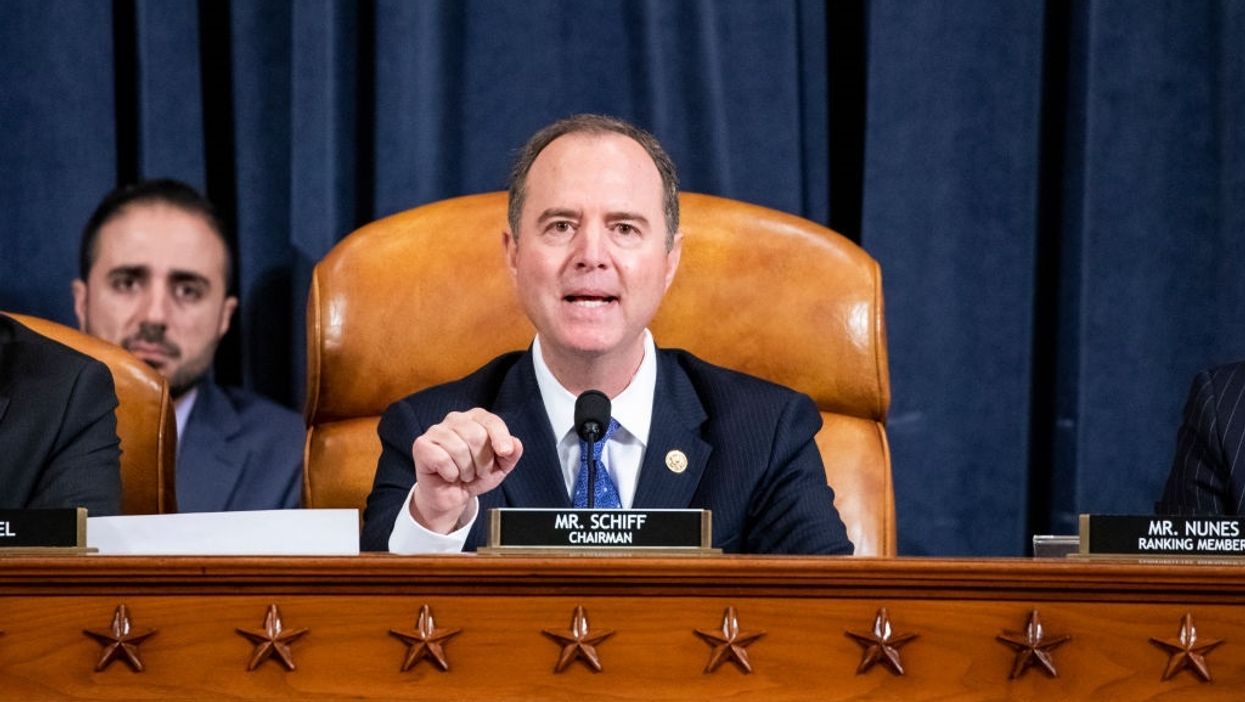
Samuel Corum - Pool/Getty Images

Things will likely get worse before they get better.
If polls are any indication, the first week of public impeachment hearings was a dud for Democrats.
Survey results indicate that even after testimony from a roster of "star witnesses" and overwhelmingly negative media coverage of the administration, Americans are less convinced now that President Trump should be impeached than they were before they launched their probe into his dealings with Ukraine during depositions in mid-October.
As Democrats head into an election year, they are clearly flummoxed by their inability to move public opinion — and this frustration helps explain an increase in calls for censorship among some on the left, including radically re-defining the First Amendment. A review of impeachment polling data elucidates how we arrived here and where we may be heading.
The FiveThirtyEight average of polls shows that during the month spanning from Oct. 15 to Nov. 15, net support for impeachment narrowed by four points. Several studies illustrate this:
What drove the shift? Three things according to YouGov: Republicans are rallying around Trump; voters are skeptical of Democrats' handling of the investigation; and independents seem unpersuaded by Democratic arguments.
In October, GOP voters opposed impeachment by a 62-point (77 to 15 percent) margin that has since grown by 10 points. Additionally, despite Democrats' focus group-tested "bribery" charges, a plurality of Americans believe the president's actions do not amount to impeachable offenses. Forty-three percent said Trump's activities were either appropriate (17 percent) or inappropriate but do not warrant removal from office (26 percent), compared to 39 percent who said they do.
Perhaps the most striking statistic is that nearly half of independents who watched or heard about the public hearings told researchers that House Democrats were "playing politics," while 36 percent said Democrats questioned witnesses in good faith.
In fairness, the Democrats' PR goal with the hearings is not to ingratiate themselves with voters, but to generate headlines that will blunt Trump's momentum heading into 2020. To that end, they've had success.
A recent analysis found that 96 percent of the nightly news coverage of Trump on the three broadcast networks has been negative since the Ukraine scandal broke. Conversely, they dedicated a measly four minutes to positive economic news, a sliver of the 398 minutes of reporting on the controversy.
Paradoxically, as Democrats shaped the scope and tone of the prevailing media narrative, public opinion has trended in Trump's favor. In fact, the president's approval rating currently mirrors Barack Obama's at this same point in his presidency, despite enjoying a scintilla of his predecessor's glowing press coverage.
Another problem for Democrats is that a large number of Americans distrust the media while a growing share of voters receive their news from sources they are not as adroit at influencing. Progressives enjoy a home-field advantage in newsrooms, but they lag behind Republicans on websites like Facebook where the most popular articles are regularly from conservatives.
Democrats face a dilemma: they have a political need to curb Trump's appeal (which they often achieve with his help), but their efforts yield diminishing returns the more voters see of them and their allies. Their leftward flank is aware of this predicament, but ideological rigidity blinds many of them to sensible solutions.
Progressives are philosophically predisposed to view politics through the prism of power struggles. When you combine this tendency with progressivism's absence of limiting principles, vast swaths of the media refusing to check the left's worst impulses, and Democrats' frustrations with Trump's political resilience, the result is unabashed extremism. This is evidenced by calls for censorious policies by Democratic officials and pundits; the nationalization of industries run by political rivals; and breaking up social media enterprises. These are not merely public policy objectives; they are means to acquiring greater political control.
Conservatives should brace themselves and offer a better pathway forward. Things will likely get worse before they get better.